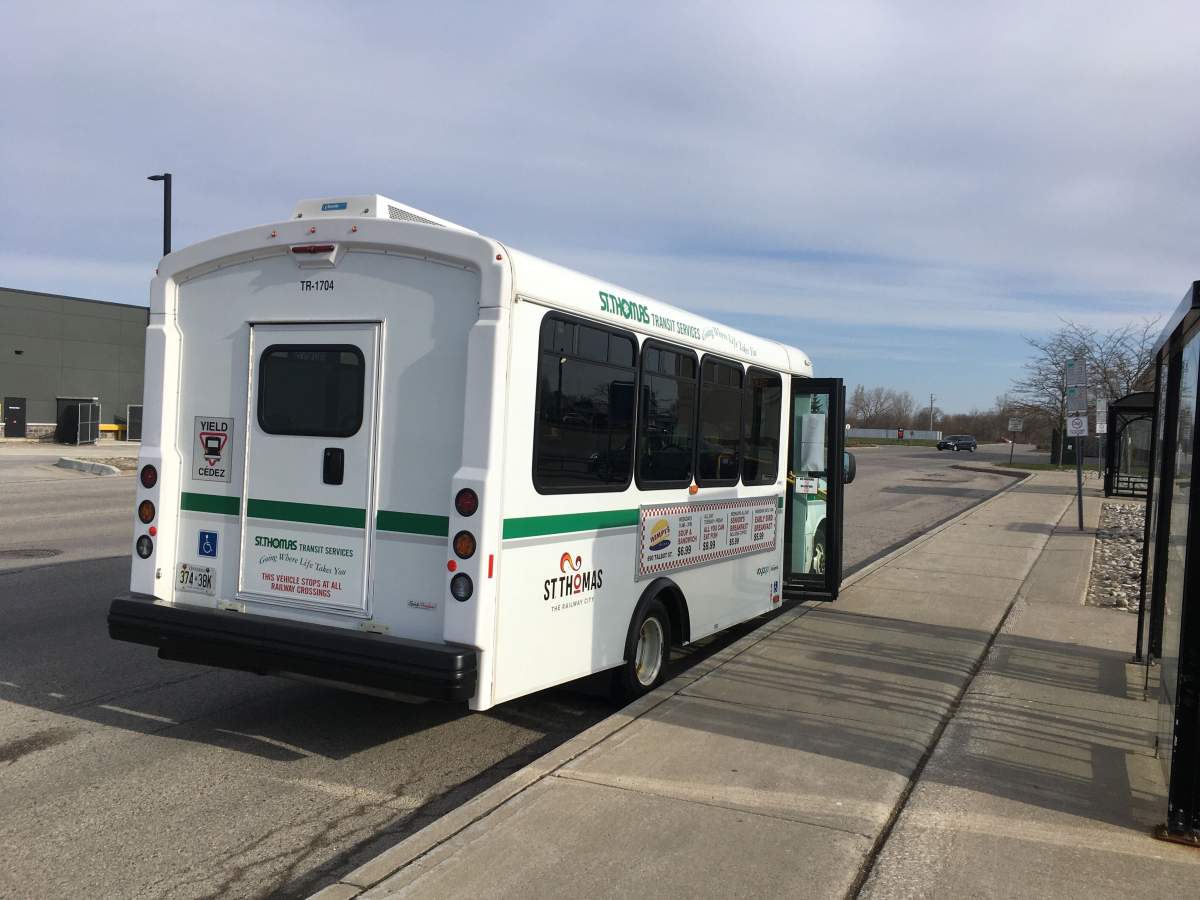The federal and provincial governments are doling out more than $12 million to bolster public transit service in 11 southwestern Ontario municipalities including Chatham-Kent, St. Thomas and Woodstock.

The funding, announced on Wednesday, will be used for everything from new buses and vehicles, to software, amenities and building expansions, according to the province.
Federal Infrastructure Minister Catherine McKenna, Elgin-Middlesex-London MPP Jeff Yurek, Oxford MPP Ernie Hardeman and St. Thomas Mayor Joe Preston were among those on hand for the announcement, conducted over a Zoom call.
“When we look at public transit, the pandemic has only made it more essential. It’s also shown that we need to make sure that we keep folks safe,” McKenna said.
“The buses are still going, and we’re still getting people around, especially those that we desperately need — health workers, grocery store employees, first responders. We need to be making sure that people can get to and from work healthy, safely, and that’s critical to restarting our economy as people go back to work and as kids go back to school.”
The largest slice of funding pie is going to St. Thomas, which will receive a total of just over $4 million from the feds and province. The city itself is forking over about $554,000.

Get breaking National news
The money will be put toward the purchasing of 14 new zero-emission buses, charging stations, solar generation retrofits, upgraded technology and improved passenger amenities, according to the province.
St. Thomas Mayor Joe Preston was elated by the news.
“This is just incredible. We’ve been through a year that no one could have imagined we would be, and in our transit system, we’re able to still get essential workers, including everybody, to work on time,” he said.
“This will help us be a better community and a more efficient community and will help the economy of our community in ways we don’t even imagine yet.”
Chatham-Kent, meantime, will see a total of $3.6 million, for five new buses, five accessible vans, upgraded fare systems, real-time vehicle location technology and improvements to its main bus terminal.
In Woodstock, $3.5 million will go toward two new buses, new signage and transit software, and the expansion of a bus garage and bus storage facility. A new, automatic bus washing building will also be constructed.
Chatham-Kent and Woodstock city halls are contributing $1.31 million and $1.27 million, respectively, to their city’s transit projects.
Other municipalities receiving funding from the federal and provincial governments include Hanover ($563,000), LaSalle ($51,588), Leamington ($472,538), Point Edward ($154,363) and West Elgin ($45,188). Each municipality is also contributing its own share.
The funding is coming jointly as part of the federal government’s Investing in Canada infrastructure plan.
Transit operators across the province have been dealing with financial and service challenges caused by the COVID-19 pandemic.
In London, the city’s transit system is facing a multi-million dollar budget hole after halting fare collection in March and turning to rear-door boarding.
It’s estimated the service loses more than $2 million in revenue every month as a result. The service plans to resume fare collection no later than Sept. 1.
The province has announced that municipalities will receive up to $4 million to help cover pandemic costs, with up to half earmarked for transit, however its not clear how much London and other neighbouring municipalities will get.












Comments